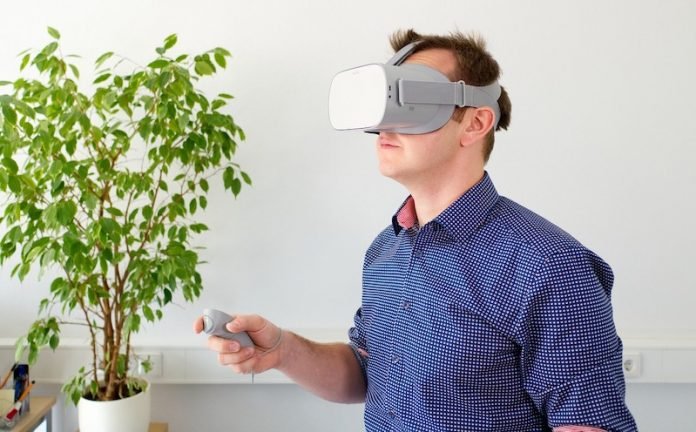
In a new study, researchers found that virtual reality (VR) technology could improve the quality of life for people with dementia.
The technology could help patients recall past memories, reduce aggression and improve interactions with caregivers.
The research was conducted by a team from the University of Kent at mental healthcare provider St Andrew’s Healthcare in Northampton.
In the study, the team tested 8 patients aged between 41 and 88 who are living with dementia including Alzheimer’s disease and Huntington’s disease.
Each patient used a VR headset to ‘visit’ one of five virtual environments (VEs) of a cathedral, a forest, a sandy beach, a rocky beach, and a countryside scene.
Sixteen sessions were monitored with feedback gathered from patients and their caregivers.
The researchers found that VR helped these patients recall old memories by providing new stimuli difficult to achieve, due to ill-health, or inaccessible within a secure environment.
For example, one patient recalled a holiday when they saw a bridge in the VE because it reminded him of that trip.
The team suggests that these memories not only could provide positive mental stimulation for the patients but also could help their caregivers learn more about their lives before care.
This can improve their social interaction.
The team also found that some patents at an art session really enjoyed the experience and suggested that the VR experience had had a positive effect on their mood.
The researchers suggest that VR can have positive benefits for patients with dementia, their families and caregivers.
It provides a richer and more satisfying quality of life than is otherwise available, with many positive outcomes.
Future work needs to do a larger study was needed to validate the results.
One author of the study is Dr. Jim Ang and Ph.D. candidate Luma Tabbaa.
The study is published in Proceedings of the SIGCHI Conference on Human Factors in Computing Systems.
Copyright © 2019 Knowridge Science Report. All rights reserved.



